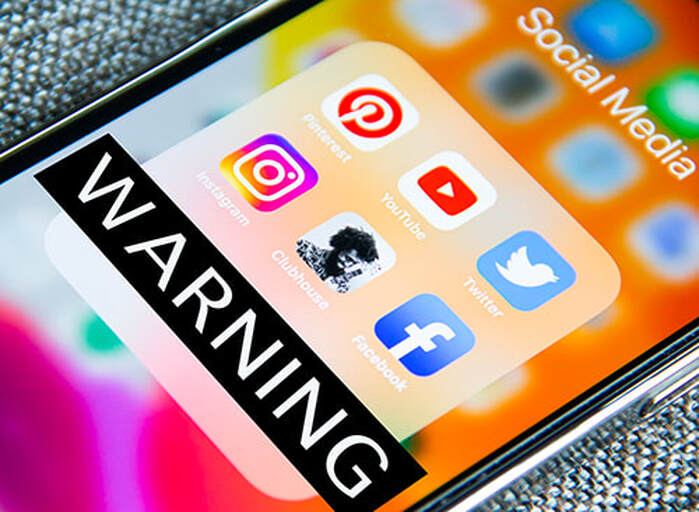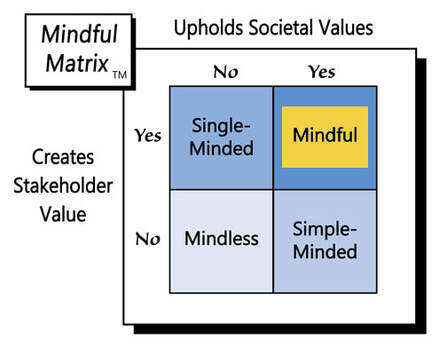author of Honorable Influence - founder of Mindful Marketing
The New York Times has called U.S. Surgeon General Dr. Vivek Murthy’s most recent warning “an extraordinary public advisory,” which is saying something since warnings from the nation’s top doctor are uncommon and have included some grave concerns like AIDS, drunk-driving, obesity, video game violence, gun violence, and, of course, cigarettes.
How could social media possibly warrant the same level of concern?
Gen Z uses Instagram to share fun videos, parents turn to Facebook to celebrate family milestones, and professionals leverage LinkedIn to post and find job opportunities, all of which seem like positive and productive things. Unfortunately, though, most of us also have read about, if not experienced, social media’s negative impact.
I teach about sociological and psychological influences on behavior, but I don’t use social media much, so I’d like to believe I’m above its affirmation-seeking lure. However, I have to admit, there are times I’m disappointed that my posts don’t receive the numbers of likes and shares that those of others do.
Putting too much weight on other people’s reactions can be problematic, but it’s just one of social media’s potential pitfalls. As the following two lists suggest, misuse of social media can impact individuals’ well-being mentally (M), physically (P), and socially (S) in many different ways.
First, Entrepreneur identifies four other pitfalls in its list of five social media dangers:
- Real-life interaction is replaced if you allow it (M, P, S)
- Feelings of envy emerge based on fabricated lives (M, S)
- Moments are missed and memorable experiences are diluted (M)
- Addiction (M, P, S)
- It can ruin your sleep, impacting your physical health (P)
Still, others suggest many more potential perils. For instance, McMillen Health identifies 15 social media dangers:
- Sedentary behavior (P)
- Less sleep (P)
- Social Media addiction (M, P, S)
- Cyberbullying (M, S)
- Missing out on face-to-face relationships (S)
- Less time for other activities (M, P, S)
- Social comparisons (M, S)
- Affecting self-image (M)
- Damaging online reputation (M, S)
- Harmful to mental well-being (M)
- Misleading information (M, S)
- Scams (M, P)
- Normalizing risk-taking behaviors (P)
- Misleading marketing (M, P)
- Inappropriate content (M, P, S)
Although anyone can be negatively impacted in these ways, children and adolescents tend to feel social media’s impacts most acutely, partly because they’re heavy users of the platforms but mainly because individuals’ formative years are ones in which they often look to others for validation, and they more easily feel ostracized from their peers.
Mayo Clinic cites many studies that found evidence of adverse effects of social media on teens, including the following:
- 12- to 15-year-olds in the U.S. who used social media for more than three hours a day were at greater risk of mental health problems.
- For 13- to 16-year-olds in the U.K., using social media more than three times a day was associated with poor mental health and well-being.
- Various studies have found links between social media use and symptoms of depression and anxiety.
Even with this evidence, it’s important to note that social media is not inherently bad. As suggested at the onset of this piece, platforms like Facebook, Instagram, LinkedIn, and others provide very worthwhile services that range from connecting people, to offering entertainment, to delivering education.
It also bears emphasizing that ultimately people are responsible for their own social media use. Even in the case of so-called ‘addictive’ apps, like TikTok, people have the ability to stop using them without experiencing physical withdrawal symptoms associated with trying to stop smoking or doing drugs like cocaine and heroin.
One qualification, however, is that parents share some responsibility for the social media use of their children, especially younger ones. Unlike adults, children can’t necessarily comprehend the potential risks because they lack life experience and knowledge of social and psychological phenomenon. It’s up to parents to help moderate their children’s social media use.
Notwithstanding the preceding points, if companies care about their own consumers and people in general, they should want to contribute to their well-being and help them avoid harm.
Here are three “Ds” every organization should do to make their social media use more responsible.
1. Discourage divisive content: This is understandably a difficult phenomenon to police, but companies from the largest social media platforms to the smallest should work to eliminate content that unnecessarily pits people against each other.
While social media platforms shouldn’t be in the business of monetizing such content, all businesses should model civil dialogue and discourage polarizing posts.
2. Don’t allow abusive behavior: The social media communication that likely weighs heaviest on young people’s mental health is the communication that involves bullying and/or shaming. Yes, freedom of speech is important, but it shouldn’t mean that anything goes, particularly when that anything involves demeaning dialogue and personal attacks.
Smaller companies also can monitor their social media pages for abusive posts, removing them as they see them and banning users who make them.
3. Decrease overuse: Bars stop serving patrons who have had too much to drink. Social media platforms can at a minimum notify users of their time on the platform, similar to Apple’s screentime notifications. Beyond that, platforms could also ask people to set their own time limits, before they start using the app, when they’re still thinking about their use rationally and objectively.
Of course, most business that use social media aren’t platforms or major apps. Still, even small businesses can discourage social media overuse by limiting their posts to reasonable numbers, e.g., one or two a day versus four or five, which communicates to followers that they can and should have lives outside of their interactions with a single business.
Companies don’t need to stop using social media because of the U.S. surgeon general’s warning, but they should reassess how their use may be impacting people. The three Ds described above don’t represent a comprehensive plan for responsible social media use, but they are important steps toward more “Mindful Marketing.”
Learn more about the Mindful Matrix.
Check out Mindful Marketing Ads and Vote your Mind!




 RSS Feed
RSS Feed